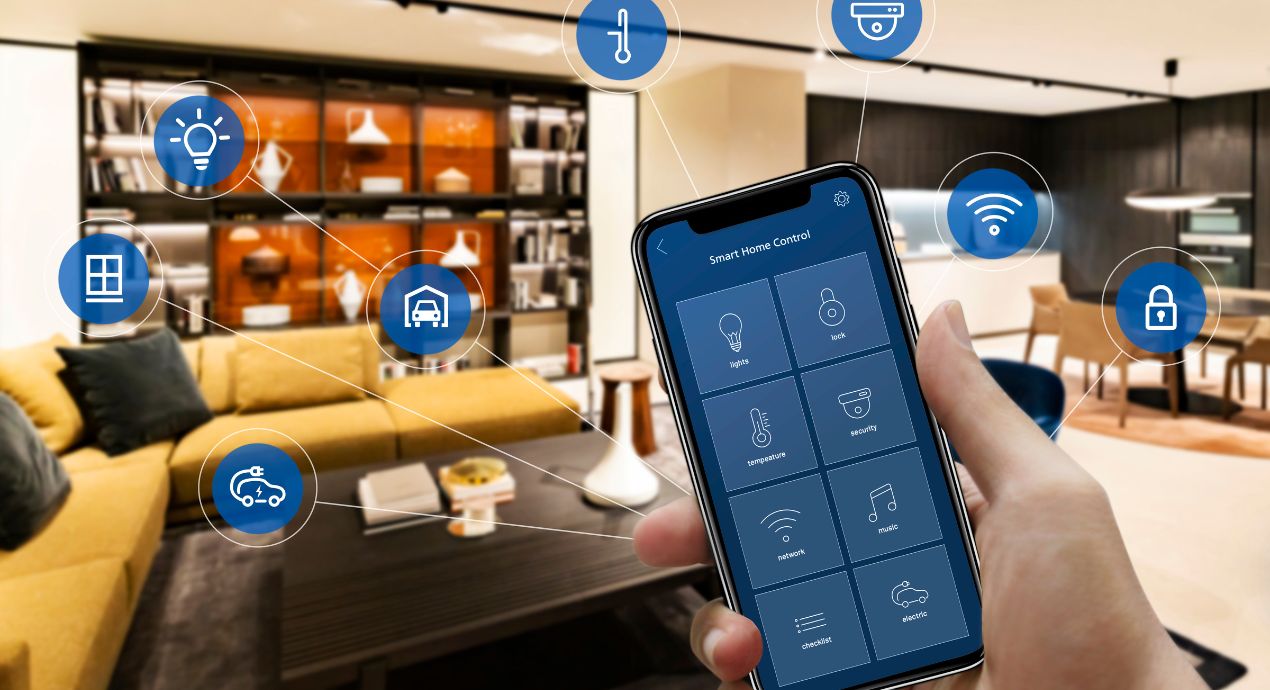Smart Home Technology: Redefining Comfort and Efficiency

In recent years, smart home technology has become a transformative force, reshaping the way we interact with our living spaces. By integrating advanced devices and systems into our homes, this innovation enhances both comfort and efficiency. It enables seamless control over everything from lighting and temperature to security and entertainment, all with just a tap of a finger. This evolution in home automation not only simplifies daily life but also creates a more energy-efficient, secure, and personalized living environment.
Revolutionizing Everyday Convenience
One of the most compelling aspects of smart home technology is its ability to automate everyday tasks, providing users with unprecedented convenience. Imagine walking into your home after a long day, only to find that the lights are on, the temperature is adjusted to your preference, and your favorite music is playing in the background. With smart systems, these small yet significant details become effortless.
Voice-activated assistants such as Amazon’s Alexa, Google Assistant, and Apple’s Siri are at the heart of this revolution. These devices allow users to control various smart appliances, from thermostats and lights to entertainment systems and security cameras, all through simple voice commands. The result is a more intuitive and hands-free way to manage your home, freeing up valuable time and mental energy.
Furthermore, the rise of smart appliances, such as refrigerators that track food inventory or ovens that can be controlled remotely, further streamlines daily tasks. The integration of artificial intelligence allows these devices to learn your preferences and habits, enhancing their functionality and making them more effective over time.
Enhancing Energy Efficiency and Sustainability
In today’s world, where environmental concerns are ever more pressing, smart home technology is playing a key role in reducing energy consumption and promoting sustainability. Energy-efficient systems, such as smart thermostats, lighting, and appliances, are designed to optimize energy use, reducing waste and lowering utility bills.
Smart thermostats, for instance, can learn your household’s routine and automatically adjust the temperature based on your preferences and occupancy patterns. By doing so, they ensure that energy is not wasted on heating or cooling an empty house. Additionally, smart lighting systems can adjust based on the time of day or when people enter and leave rooms, further contributing to energy conservation.
Beyond saving energy, smart home technology also supports sustainable living in other ways. Smart irrigation systems can monitor weather patterns and soil moisture, adjusting water usage to reduce waste in gardens and lawns. Similarly, solar-powered smart devices and energy storage systems are becoming increasingly popular, allowing homeowners to harness renewable energy and store it for later use, further reducing their carbon footprint.
Improving Home Security and Safety
One of the most significant benefits of smart home technology is the enhanced security it offers. Traditional security systems often require manual monitoring and intervention, but smart systems provide real-time alerts and remote access, ensuring that homeowners can monitor their properties from anywhere in the world.
Smart cameras, doorbell cameras, and motion detectors are key components of these advanced security systems. They can be integrated into an entire home network, providing seamless monitoring through mobile apps. Real-time notifications alert users to potential security breaches, such as unexpected motion or unauthorized access, giving them the ability to take immediate action.
In addition to security, smart home technology can also improve safety in the home. Devices like smart smoke detectors and carbon monoxide sensors can detect hazards and send alerts to homeowners before problems escalate. Furthermore, connected water leak detectors can help prevent flooding and water damage, providing peace of mind for homeowners in areas prone to natural disasters.
Creating a Personalized Living Experience
Another remarkable feature of smart home technology is its ability to create a highly personalized living experience. With interconnected devices, users can tailor their homes to fit their specific needs, preferences, and lifestyles. For instance, a smart home system can adjust lighting, temperature, and sound settings based on the time of day or the activity being undertaken.
For instance, a “movie mode” setting could dim the lights, close the curtains, and adjust the temperature to create the perfect environment for watching films. Similarly, a “wake-up” mode could gradually increase the brightness of your bedroom lights and start brewing your coffee, all before you even get out of bed. These personalized settings contribute to an overall feeling of comfort and relaxation, allowing homeowners to enjoy their space to the fullest.
Furthermore, smart home technology can integrate with wearable devices, such as fitness trackers and health monitors, to create a health-conscious home environment. Smart beds, air purifiers, and circadian lighting systems are designed to improve sleep quality and support overall well-being, making the home a sanctuary for health and relaxation.
The Future of Smart Homes
As technology continues to advance, the potential of smart home technology is limitless. In the coming years, we can expect even more sophisticated devices that are capable of seamlessly integrating with one another to create smarter, more responsive homes. Innovations such as 5G networks, AI advancements, and Internet of Things (IoT) developments will further enhance the interconnectedness of devices, enabling homes to become even more intuitive and self-sufficient.
The future of smart homes also promises increased customization and integration with other emerging technologies. For example, augmented reality (AR) and virtual reality (VR) could be used to create immersive home environments, where users can interact with their homes in entirely new ways. Additionally, advances in machine learning and data analytics will allow homes to learn from residents’ habits, making adjustments automatically to meet their needs without any manual input.
Smart home technology is fundamentally transforming the way we live. From offering unparalleled convenience to improving energy efficiency, security, and personalization, it is redefining what it means to live comfortably and sustainably. As the technology continues to evolve, it holds the potential to make our homes not just smarter, but also more attuned to our needs, desires, and values. The future of living is undoubtedly smart, and the possibilities are exciting.



